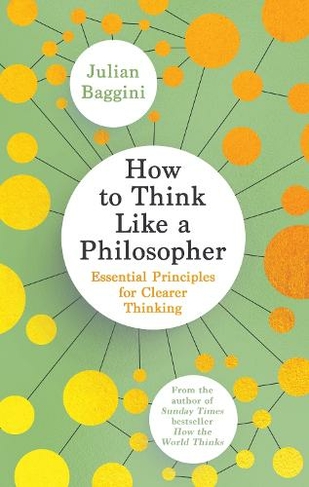If you like reading about philosophy, here’s a free, weekly newsletter with articles just like this one: Send it to me!
A very enjoyable introduction into Western philosophy. Light, conversational, entertaining and intellectually stimulating. An excellent book for non-philosophers who are interested in learning more about the history of Western thought.

What can the history of philosophy and a look at the lives of the great thinkers of the past teach us about our lives today? This seems to be one of the questions that motivate Peter Cave’s new book How to Think Like a Philosopher, which just came out a few days ago.
The author
Before we begin, let me get rid of an embarrassing admission: until I received his book for review last week, I had no idea who Peter Cave was. I was born in Germany, raised and schooled in Greece and lived the past decade and a half in Hong Kong, so perhaps my ignorance can be forgiven. I still have no idea how famous the man actually is.
If you are like me, perhaps you’d like to know that YouTube has a selection of his interviews and speeches, and he has written roughly one book every two years since the early 2000s. He is a popular philosophy writer, Fellow of the Royal Society of Arts, BBC radio philosophy presenter and generally a person who gets around. Together with David Attenborough and Jane Goodall, he supports Population Matters, a charity that promotes population control as a means to ensure the survival of the planet, which, I believe, is an excellent idea.
I am less enthusiastic about his self-identification as a “humanist,” which is a label I don’t quite like in its modern incarnation. Probably everyone who has some sense agrees that the Christian churches are problematic institutions and that religious fanaticism is not a good thing. But there is also the opposite attitude: the belief that humans are the best thing since sliced bread, and contemporary “humanism” seems to promote this idea. Embraced uncritically, this can lead to overconfidence regarding the abilities of human reason, to the hubris of the modern homo faber who thinks that the whole world is there just to amuse them and to do their bidding. I always found that modern, enlightened Christians were better, friendlier, more caring people than staunch atheists, who often come across as blind to their own failings and unable to accept that human reason might have its limits and that a bit of intellectual humility is a nice thing to have (I’m thinking of Dawkins as a prime example of this attitude). Anyway, all this has nothing to do with the book we’re discussing here, and I have no idea what kind of …
Read the full article which is published on Daily Philosophy (external link)







